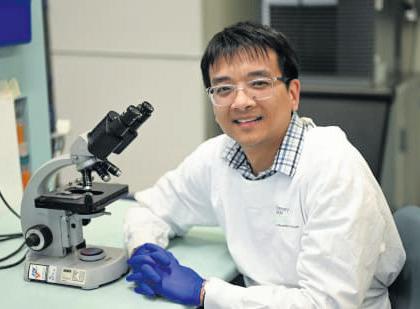
1 minute read
New treatment offers hope for advanced liver cancer
Centenary Institute
Researchers have discovered a new way to treat hepatocellular carcinoma (HCC) the most common type of liver cancer, and the third leading cause of cancer death worldwide.
The Centenary Institute led study revealed an encouraging treatment strategy involving the use of a new drug called Blockmir CD5-2, combined with a drug called programmed cell death protein 1 antibody (antiPD1 antibody). This combination proved effective in reducing liver tumour size in mice.
Lead author of the study, Dr Ken Liu, a researcher in the Centenary Institute’s Centre for Cancer Innovations said the discovery was exciting and had the potential to be a viable treatment for advanced liver cancer.

“The synergistic effect of the drugs Blockmir CD5-2 and anti-PD1 antibody signifcantly reduced the size of liver tumours in mice in our study. We believe that this dual-drug approach enhances the immune system, rendering it more effcient in combatting cancer cells and reducing tumours,” said Dr Liu.
Dr Liu explained that liver tumours often have abnormal blood vessels and low oxygen levels, creating










